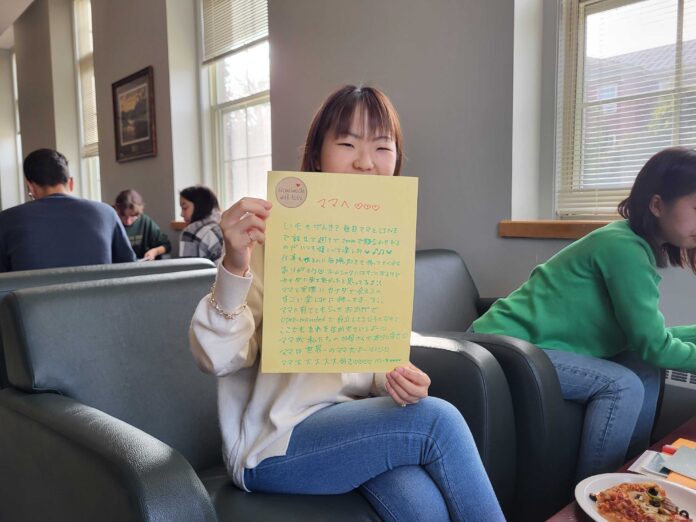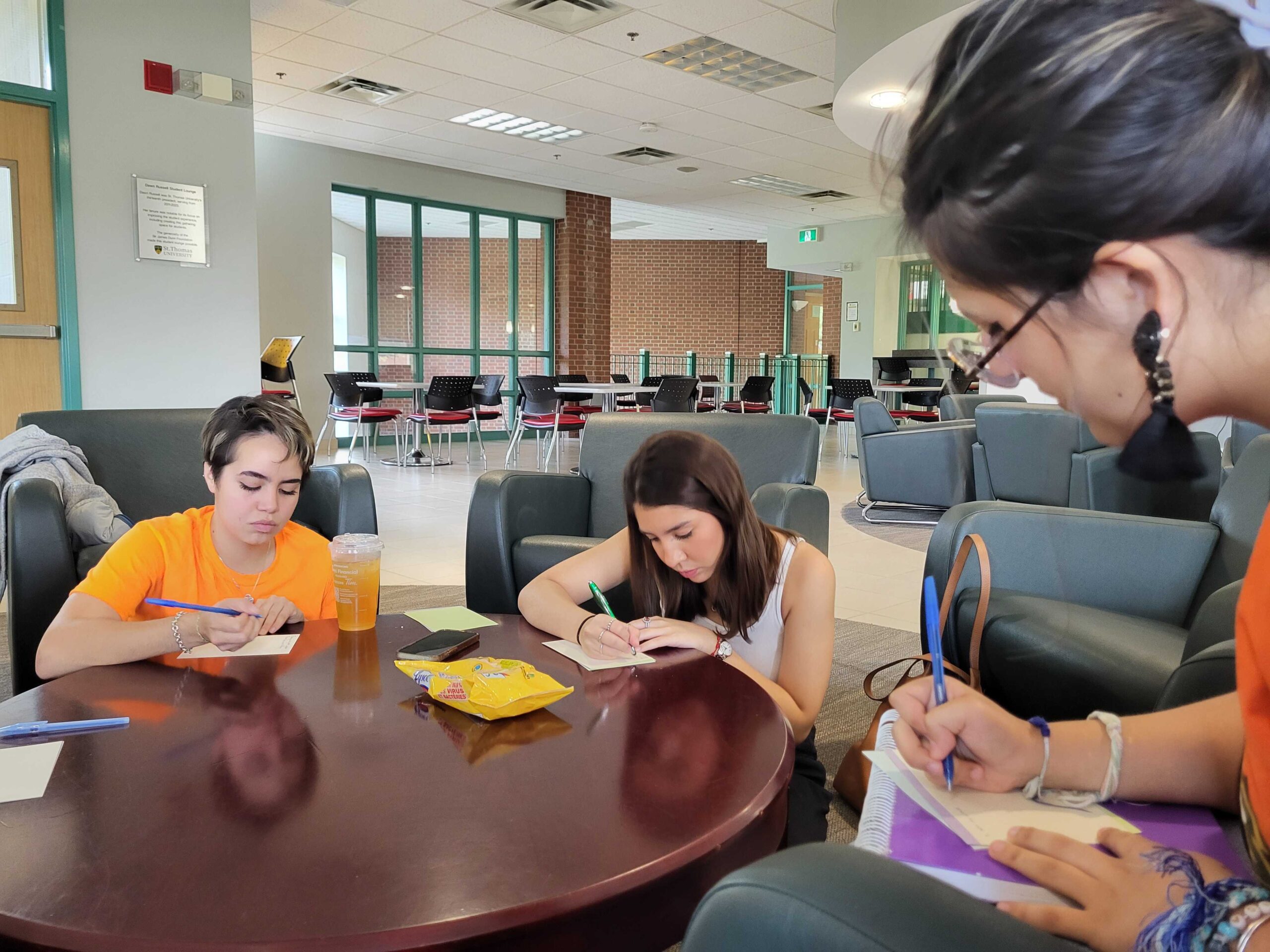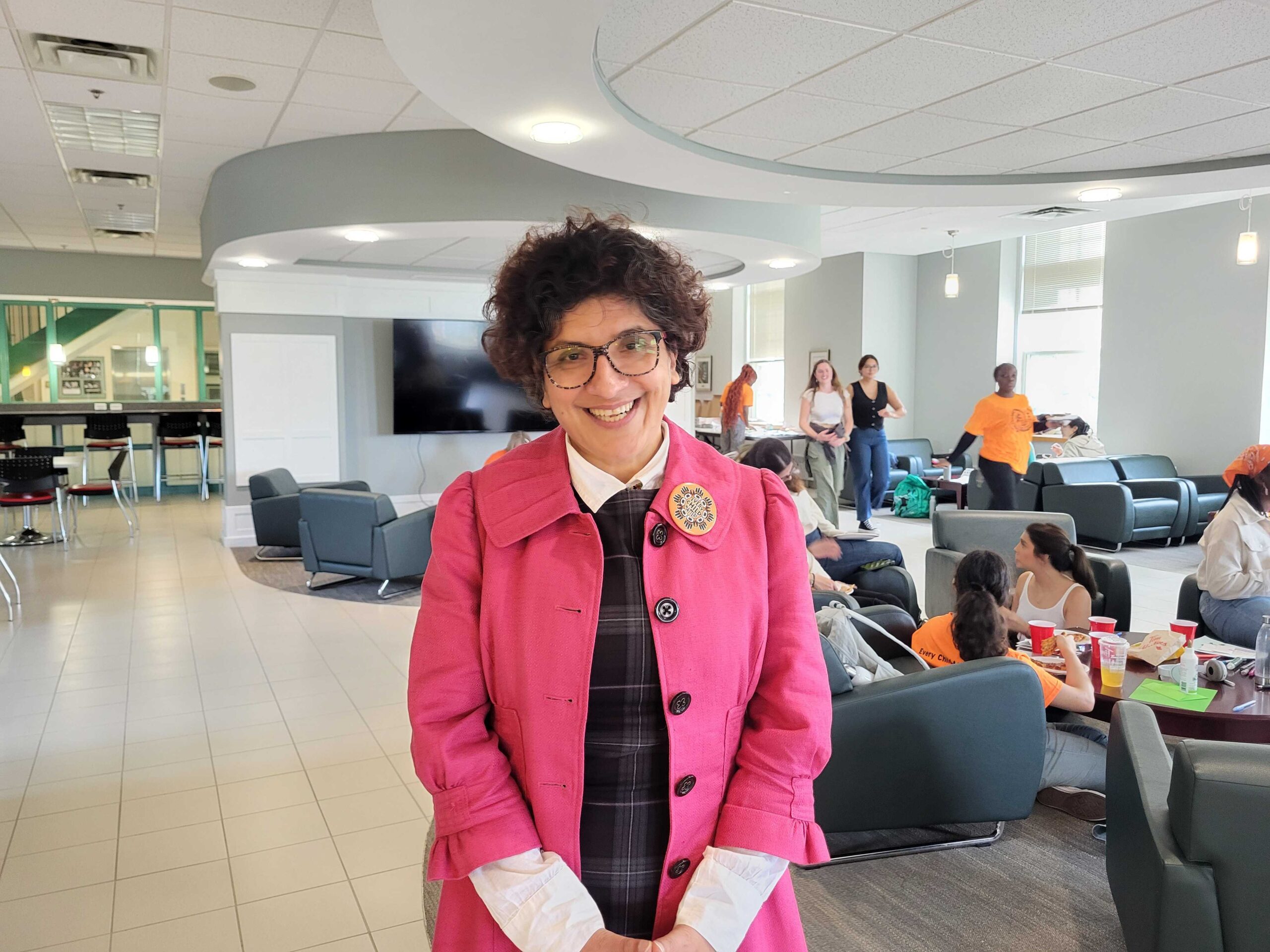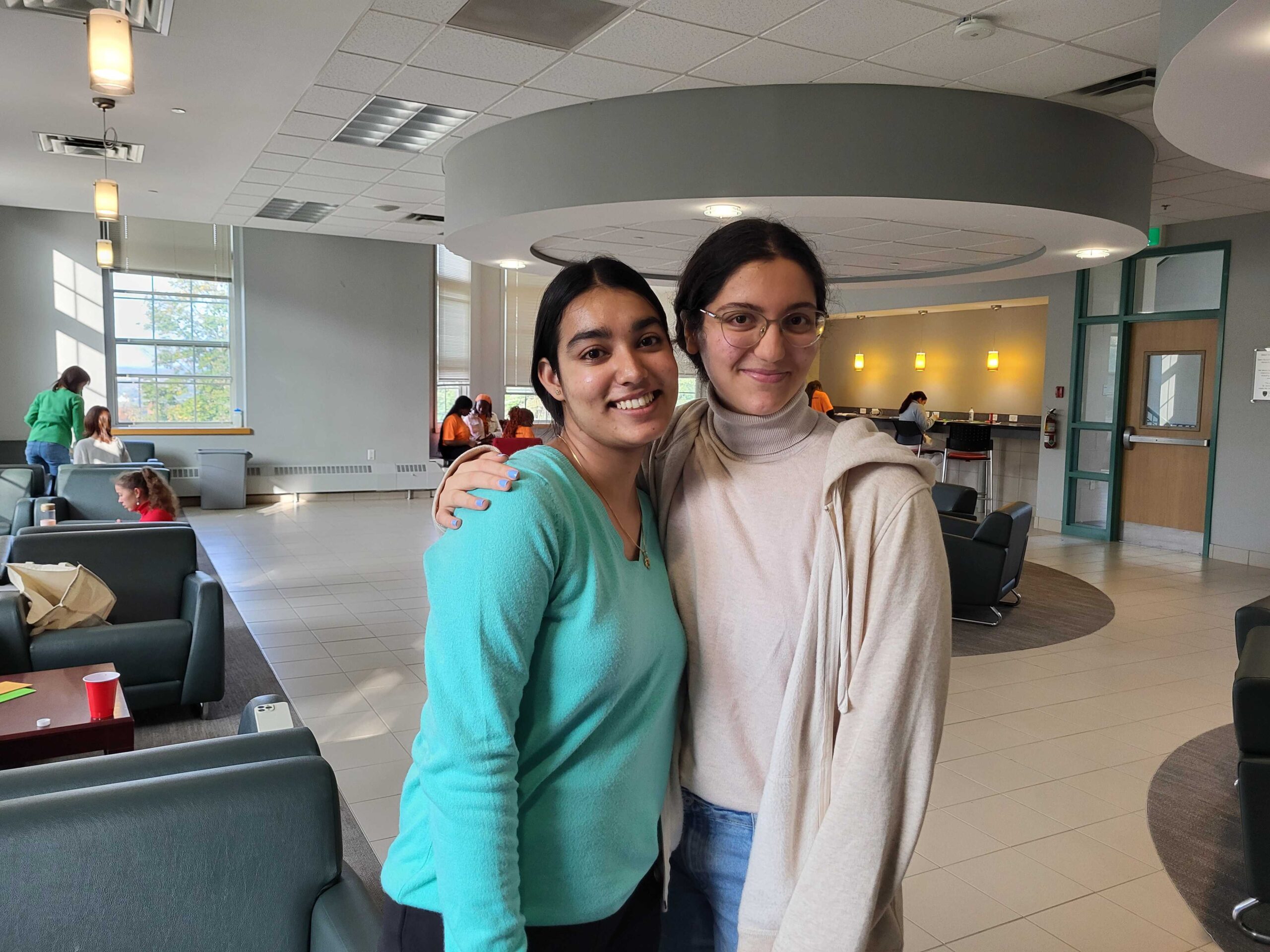

A month after arriving in Canada, Kanoa Machida, an exchange student at St. Thomas University from Japan, said she started to feel homesick.
Canada is very different from her home country, and while she said she is excited to learn more during the two semesters she is staying, Machida also misses the little things: the food, the lifestyle and especially her mother.
When she learned about the “Letters Home” event organized by STU’s international office on Sept. 29, she knew she had to attend and make her feelings known. With a yellow sheet of paper, some colourful markers and plenty of stickers, she wrote her mother a letter that the international office would then send to Japan.
“I just say ‘I miss my mom.’ I’m writing saying we miss her so much,” said Machida. “We just say that we love [her]. She’s the best mom in the world.”
Carrie Monteith-Levesque, STU’s international student coordinator, said people from all around the world came to the event. To her, what brought attendees together was their connection to home, wherever that might be for them.
“Homesickness is a reality … especially as the climate changes [and] the days get shorter,” she said. “We wanted to introduce an event where students could come together to share their stories about home, write letters home and connect with home.”

The first event of this kind took place last year. However, this time around, Monteith-Levesque invited STU sociology professor Gül Çalışkan to start a conversation with the attendees.
Çalışkan is the lead researcher for “Promise of Home,” a community-based project collecting the stories of newcomers in New Brunswick. She gave attendees four questions relating to “their stories,” which to Çalışkan can mean many things.
The conversation touched on topics such as racism, housing, culture shock, higher tuition and other challenges international students face when coming to Canada. Çalışkan added that she will meet with policymakers on Oct. 20 and 21 to spread awareness.
“We learn from stories more than if we do a survey or another form of interview,” she said. “Hopefully, it won’t be anchored in the stories, but it will translate into policy suggestions.”


Çalışkan herself relates to many of the stories shared with her. She came to Canada in 1999 with two suitcases and a dream — to get her PhD at York University.
Following that, she relocated to Fredericton, where she observed the challenges faced by many children of immigrants due to their difficulty in maintaining a connection to their cultural roots.
“There is a disconnect between people arriving here but not making it home,” said Çalışkan.
Gursimran Kaur is a first-year student from India and she wrote a glittery letter to each of her parents. She shared that at first, she was very scared of not making friends, but this fear quickly faded when she met her best friend during Welcome Week.
“Now, we’re non-biological sisters,” said Kaur.
Her best friend, Donya Atbaeitabari, kept her motivated when she got homesick. She can’t recall how many times she has cried since arriving in Canada.
“I miss my family a lot even though we do video calls every day. But still, there’s something, some feeling beneath in our heart, that we miss them a lot,” said Kaur.


Kaur asked domestic students to engage more with international students, as she often feels there is a “barrier” between them.
“Talk with us more. You guys are a little bit reserved … Please reduce that barrier so that we can be friends with you.”
